 There is something about being awake when the world is still and everyone else is tucked in their beds that makes you contemplate the universe. Each morning while I walk my dog, Wilbur, my mind thinks all of the thoughts that are too big for me to think at home. In fact, it is only the promise of thinking time that quiets the protest in my head when my excited pup pulls me from the comfort of slumber and into the early morning hour. You see, I crave solitude so much that I wake up before my family every day just so that I can be alone. Don’t get me wrong: I love my family and they’re cool people and all. But, I know that being alone for regular intervals is essential to my mental health and well-being. Not only am I an introvert, but I am an anxious introvert who masquerades as an extrovert. I do this every dang day and it’s exhausting! Even though I am a care-giver who instinctively loves and supports other people, there’s another part of me that wants to remain a quiet, unruffled observer of the world. Truth be told, other people and their needs are a constant source of pressure for me. Despite this, each and every day, I dutifully get up, get out the door and present myself to the world as an extrovert. I do good work this way, but it requires a level of emotional vulnerability that drains me every day. As I get older, I find that I am craving quiet and solitude even more. My thoughts are like my closest friends and I can’t wait to be with them in a way that can’t happen when other people are around. Sometimes, I actually feel excitement at the thought of turning off the light and going to bed because it means that I can lay there and hear my thoughts again without interference or interruption. The bottom line is that introverts--especially anxious ones--need periods of peace and solitude as bulwark against the insistence of socializing. We need to build in times in our day when we can recharge. For a long time, I ignored my need for this time and the result was regular emotional burnout. I have now created my own little office space in my home and that room is like a sanctuary. I’ve outlined boundaries and my family respects them. The kids knock before entering; they don’t disturb me unless it’s important. My family understands that when I emerge from my happy place, I will be rejuvenated. And, that’s good news for everyone. And so, as Wilbur and I walked the streets this morning, when the sun had not yet risen and even the birds were barely awake, I could feel my emotional batteries charging. It only took me 45 years to understand myself and to lay down the boundaries required to function successfully as the anxious introvert in an extroverted world.
3 Comments
 Creativity is not an inherited gene like blue eyes or wavy hair. When people say they aren’t creative, it just isn’t true. We are all born with the capacity for original thought, fantasy, creation and exploration. It is only as we get older that we are conditioned to stifle it. There is creativity swirling inside everyone, but I would argue that it is less of an attribute and more of a skill that requires developing. And, as with all skills, creativity needs commitment, inspiration and courage in order to bloom. When we are children, our creativity is nurtured and developed through books, colours, music, sights, sounds, experiences, relationships and play. Lots and lots of play. Sadly, the impulse for unfiltered play gets driven from us earlier and earlier in our lives. Instead, our instincts for creation and imagination are being replaced with the drone-like consumption of screen time and task completion. I know what you’re thinking. Yeah, yeah, we use too much technology. Yada, yada, yada. The issue has certainly been discussed ad nauseam. Stick with me though, because that’s not my main point. My point is that even though it may be half-dead deep inside you—trapped by to-do lists and daily monotony--your creativity is still there. It’s not dead, just dormant, and with practice and care, it can flourish again. You see, creativity only dies if you let it and we only let it because we are unaware of its value. 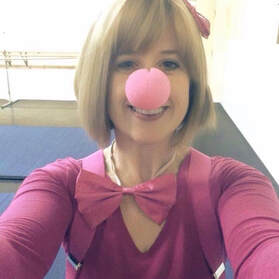 Creativity is essential to human progress. Without it, there would be no problem solving, no invention and no collaborative creation. Without creativity, there would be no scientific discovery, no medical advancements or philosophical inquiry. You see, creativity is not only important, it’s vital! So now that we understand its importance, let’s develop our creativity by following these four simple steps: Creativity requires commitment. If you aren't committed to regular exploration, then you don’t want to be creative badly enough. Artists and poets don’t create masterpieces by waving a magic wand. They work at it daily. If you want to be creative, you need to set aside time each day to develop the skill. If you want to write: write. If you want to draw: draw. If you want to dance: dance. It’s not important whether the outcomes are good or not. In fact, don’t be so focused on the outcome. The process of creation is more important than the product itself. Just spend time exploring the skill. Creativity requires inspiration. Fill your head full of thoughts. Your thoughts, other people’s thoughts. Thoughts about thoughts. So many thoughts! Never stop thinking! Listen to music, read books, listen to podcasts, watch films, look at art. Surround yourself with other creative thinkers and allow them to inspire you! Lastly, creativity requires courage. You can’t be afraid to suck. In fact, you need to suck. Then you learn something. Then you try again. Then you suck less. Then you learn more. You get the idea; it’s a process of vulnerability, so let go of the ego now and focus on what you can learn. If you are too afraid to fail, you will never create a damn thing. The world needs creative thinkers. The world needs people who can imagine the world not as it is, but how it could be. Be committed. Develop your craft. Fuel your inspiration. Be courageous. Creativity only dies if you let it. Don’t let it.  We’ve all been there. You arrive at work prepared to take on the day. You’re humming your tunes, you’ve packed a tasty lunch and you’re feeling pretty good. Everything is in balance until you swing open the door and you step into the room. Then it hits you like an impenetrable wall. A wall of negativity. A wall of darkness. Somewhere in the room is an energy sucker. Your heart rate increases and your eyes dart from side to side. You can feel them, but you don’t know who they are yet. Is it too late to get out of there? Will you be noticed if you (make a sudden about-face and) leave? But, wait a minute. You can’t leave; you work here. What are you going to do? You offer the room an exploratory greeting. “Good morning, everyone’, you proffer. A few people throw salutations your way and then there it is; the energy sucker identifies themselves with what can only be called a grunt. 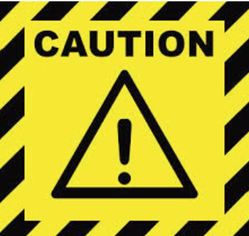 You proceed with caution. You extend pleasant conversation. Out of nowhere: slam! Negativity slaps you hard across the face. You regroup and attempt a clarifying question: Is everything ok? Slam! An uppercut to the jaw. With every second that passes, you feel yourself drooping, your earlier positivity draining from you. In very little time, you find yourself growing angry and anxious. You have deflated so much, so quickly that you can barely remember your earlier buoyancy. How did this happen? All you did was walk into the room and now your entire day seems greyer. Not even the very tasty lunch clutched tightly in your hands can help you now. Let me take a moment here to be clear about what an energy sucker is and what an energy sucker is not. An energy sucker is not someone who is just having a bad day and is trying to hold themselves together. They are not those everyday folks like you and me who have problems, but are socially aware enough to know that others have them, too. Thus, when I speak of energy suckers, I am not speaking of the usually good-natured individuals who try hard not to dump their garbage load of bad energy onto others. Rather, an energy sucker is someone who constantly drains the room of possibility and progress. To them, the answers are always no, we can’t, it won’t work, that’s not how we do it here. So mired in their own muck, the energy sucker has no ability to see the way their words, thoughts and actions are affecting the room. They are the antithesis of momentum and bring everything around them to grinding halt. Now, those of you who know me and my usually sun-shiny self, may be anticipating my coping strategy. You may be thinking that I would advocate for having compassion, offering support, being a good listener, walking a mile in their shoes, having gratitude. You get the idea. I’ll admit that’s how I used to handle energy suckers. I used to allow them to use me to keep themselves afloat, drowning me in the process. I used to absorb their negative energy in hopes of providing them--my fellow human being--with a little relief. I used to. But, turning 40 changes a woman and gone are the days when I would put up with being emotionally controlled or manipulated. A woman in her 40s has no damn time for that. She could do it, but she won’t.
and will result in you feeling bitter and manipulated. You doing their work only enables them to keep sucking people down into the mire. They don’t want to be in the muck alone! They want everyone in there with them. Do not get close enough. Do not get sucked in. Just run.
Be near people who lift you up. Lift others up where reciprocity exists or is possible. But, for gosh sakes, get away from the suckers and don’t ever feel a moment of guilt about it. 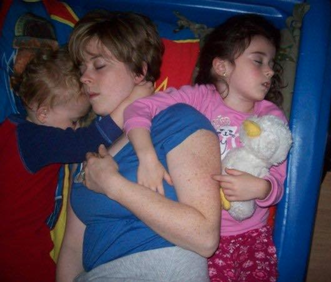 Sleeping in a toddler bed underneath my 2 kids. Sleeping in a toddler bed underneath my 2 kids. I get it. Life is busy. Some days you feel like you can barely catch your breath. As quickly as you cross something off of your list, something new pops up. Children, spouses, activities, jobs, bills, shopping, pets, housework, errands, appointments. Rush, rush, rush. Each night you fall into bed, only to awake feeling no more rested than when you went to sleep. Do you ever pause long enough to wonder what it’s all for? Why are we all working so damn hard? At the end of each day as we flop on the couch, too exhausted to engage with our spouses, too depleted to pursue our passion projects. All we seem to have energy for is mindless scrolling through social media. There, in this online world, we see other people’s tidy houses, their cleverly themed birthday parties and their exciting vacations. But is any of that real? Are we seeing their reality or their skillfully crafted media presentation? Are we working to live or are we living to work? Is working to live really living? I understand too well the frustration and helplessness of the incessant demands. You need to just keep going. There’s so much pressure. If you slow down, something will get missed. There are so many balls in the air and pausing even for a moment would mean a ball would be dropped. Something would be unfinished; someone would be disappointed. But, friends, please slow down for a minute and hear me out. Take a deep breath and just exhale slowly. What if I were to suggest that you should drop all of it and take a good step back? Think about it: how many of those balls that you juggle everyday are truly meaningful to you? For years, I subscribed to the self-destructive paradigm that more is better and that being busy meant that I was successful. Moving forward in my career. Constantly upgrading credentials. Chauffeuring my children from high performance program to high performance program. Eating dinner in the car. Regularly working past midnight. I spent my days clutching my $7.00 coffee and wearing my fatigue like a badge of honour. I was important, you see, and important people are tired, right? Then one day it happened. My daughter no longer wanted to do competitive dance. I could let go of that ball and instead of scrambling to pick something up in its place, I just left it there and waited. Curiously, nothing ominous happened. Nothing came crashing down and things seemed just a little easier to juggle. Soon after, my son told me he was no longer interested in doing martial arts. Instead of resisting, I allowed that ball to drop. A wave of relief washed over me. The remaining balls seemed so much lighter. Emboldened, I started pitching balls all over the place. I couldn’t get rid of them fast enough. I jettisoned committees and clubs. It was so freeing. What I was left with was the most precious gift I could ever receive. Time. My time. I gave it back to myself. What happens now is magical. We have dinner at home as a family. There is time for unstructured spontaneity. My kids can hang out with their friends. When school and work are done, we are free! There’s even time for my own personal self care and, yes, my own passion projects. Most nights, I go to bed on time. I work out every day. Sometimes, we don’t even do anything. Sometimes, we simply lounge about. Sure, the house is often a bit messy, but I don’t care because that’s not where I choose to use my time. You see: you do have time. You have time for whatever you want. In the end, perhaps that’s all we have. Minute by minute, hour by hour, day by day: we choose how we use the time we have. For so many years, I thought that busy kids meant happy kids. Good moms provided their kids with constant opportunity and fulfillment, even if that was at the expense of their own joy and interests. Every day, I made a choice about what I committed myself to, what I committed my kids to. But when we all stopped and talked about it, we realized that none of us wanted any of it! None of us felt our time enriched by busyness. None of us needed to juggle so many balls. You have time, too. And choices. So, how do you want to spend your time? |
AuthorWife, mother, teacher, dancer, yogi, dreamer, wellness influencer. I own too many dogs and I drink too much coffee. Passionate about the full-body health and mindfulness connection. Archives
August 2021
Categories |
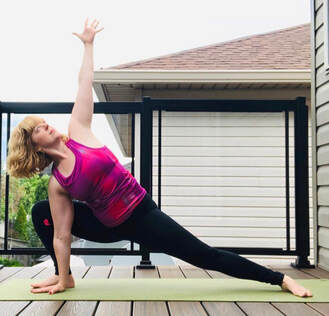


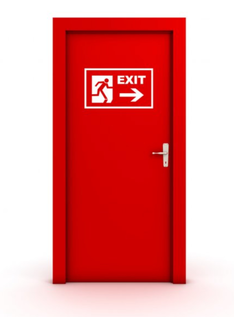
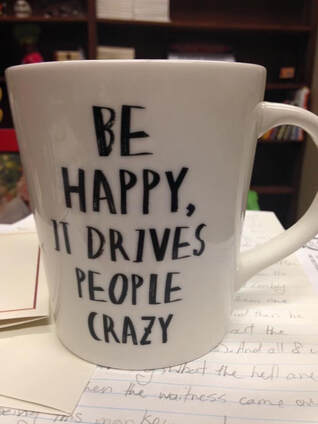
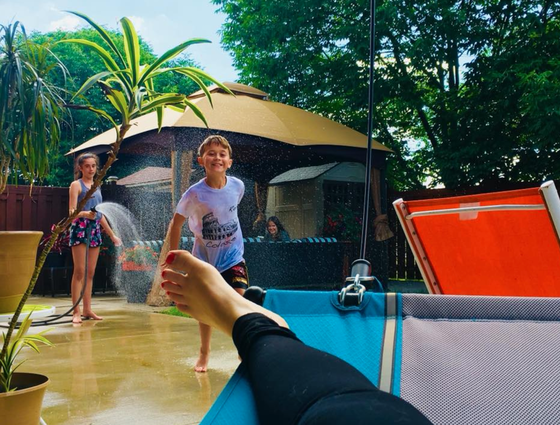

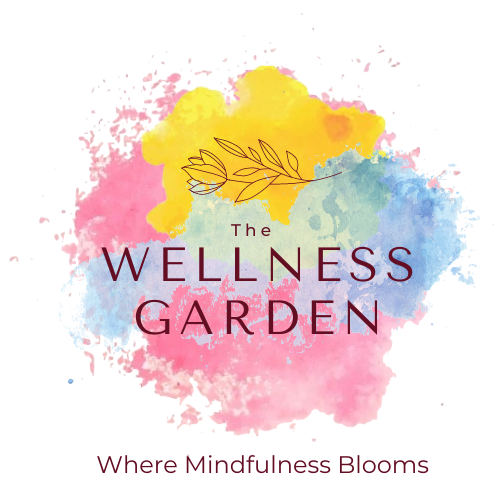
 RSS Feed
RSS Feed